Do you ever see those woodland for sale signs and think, “What if I brought a little bit of land, built a modest cabin and started to grow a little food?”
Surely it would be better than saving every last penny to try and get a deposit on a house that will never be able to grow with you and your family?
This article will explore the possibility of that dream with some exciting legislation in Wales.
This Got Us Thinking

We’ve just booked a Forest Holiday in the Forest of Dean, big enough to accommodate all our family, with a treehouse that’s an add-on. And we thought, wouldn’t it be nice to live like this.
Considering you canbuy woodland for as little as 15k and buy buy 3 bed cabins on Amazon Prime now for less than $10 k that can be delivered and livable in a day (or many higher-end prefab mansions that take a few weeks but for less than a 3-bed semi), it doesn’t seem that unrealistic to just buy some land and stick some accommodation up.

Rude awakening:
I always thought that when I was younger, I would disappear into the wilderness, build a cabin and live out my days. It was a rude awakening to realise that any wilderness in the UK often has a car park and a coffee van, offering some funny looks to a 20-something me trying to find a tree to start building with.
The reality is that most land is owned, and its ability to hold value and avoid tax means it’s usually hoarded by people with enough money not to need it.
In the UK, most land is classed as
- Agricultural (farming)
- Greenbelt (protected)
- Residential. (for building houses and businesses)
If you want to build a home on non-residential land like woodland, you usually need full planning permission. That means getting approval from the local council and proving your home meets strict rules on land use, access, services, and environmental impact. This is almost never given, especially not without an expensive legal bill.
Since we’ve become digital nomads, we’ve cycled through lots of ideas from selling our house to buy land abroad so we can be mortgage-free and self-sufficient and pulled back, not wanting to leave friends, family and the country we grew up in. but just assuming building our own cabin in the woods was never a reality.
🌱 A Policy of Hope: Why OPD Matters
For anyone longing to escape the noise and live more self-sufficiently, more deeply connected with nature, or just away from other buggers, even basic property with the means to achieve just one of those goals, is often pushing £1million in the UK.
Most people don’t want anything fancy and would happily build something simple if given the chance. However, government policies and local planning permission often feel like obstacles, not allies.
But in Wales, there’s something rare: a planning framework designed to support low-impact living rather than block it.
One Planet Development (OPD) was introduced by the Welsh Government to allow people to build homes in the open countryside — homes that meet strict sustainability criteria — if they commit to living in ecological balance with their land.
You can read the official planning guidance here: Practice Guidance – One Planet Development (GOV.WALES) (GOV.WALES)
And the general overview “Planning permission: one planet developments in open countryside” is here: GOV.WALES (GOV.WALES)
OPD is built on powerful ideas:
- We each have a “fair share” of the planet’s resources; a home should use no more than that.
- Homes in rural areas should support self-reliance: energy, food, income, waste, water.
- The policy expects that new dwellings will improve biodiversity, soil health, ecosystems, rather than degrade them.
- Instead of fighting against nature, OPD asks you to work with nature, over time.
This policy has actually been around since 2011 however there have only been 38 approved OPD planning applications in Wales to date, proving it’s not just theory. (GOV.WALES). Of course local councils have done their best to block things, but with assembly-level legislation, those councils haveve actually had to eat their words and, in some cases, pay applicant costs back.
So yes — we can be hopeful. Wales is trying to bend planning toward regeneration, not just development.
But policy is only part of the story. Let’s get real about what it takes for you, the reader, to make this work.
🛤 From Dream to Reality: What You Must Do to Live in Woodland Legally
Below is a more grounded guide — not wishful thinking, but the steps you’ll likely need to succeed under OPD.
| Step | What You Need to Figure Out | Tools / Links |
|---|---|---|
| 1. Understand the rules deeply | You’ll need to create a management plan, do an ecological footprint analysis, show you can meet minimum needs via land, and more. Read the full OPD Practice Guidance. (GOV.WALES) | OPD Practice Guidance (pdf) (GOV.WALES) ; “Planning permission: one planet developments in open countryside” (GOV.WALES) |
| 2. Choose your site carefully | The land must be able to support your plans (soil, water, sunlight, slope, access). Also avoid protected designations or ancient woodland constraints. | Use woodland / land sale sites (see examples below) |
| 3. Talk to local planning & get feedback | Early engagement helps. Some councils are more open-minded than others. They may challenge your assumptions. | One Planet Council offers advice and bridging support. (oneplanetcouncil.org.uk) |
| 4. Design your dwelling & infrastructure | It must be a low-carbon / zero-carbon home, with designs that minimize energy, use renewables, and integrate water, waste, etc. | The OPD guidance includes footprint tools and calculation methods. (GOV.WALES) |
| 5. Build in phases & show proof | Often, you start in a smaller temporary structure while building the full home. You must show you are meeting your plan (food production, energy, etc.). | Monitoring conditions are common in OPD permission. (GOV.WALES) |
| 6. Build your land-based enterprise | Income from land (agriculture, forestry, glamping, workshops) helps satisfy OPD criteria. | Advice guides for applicants exist. (oneplanetcouncil.org.uk) |
If you do all that well, OPD can shift your plan from “impossible” to “permitted with conditions.”
🏞 Real Woodland & Land Plots You Can Browse Now
To make this more concrete, here are some woodland / land plots currently on the market in Wales (or bordering areas) with price ranges. Use these as benchmarks, not guarantees:
| Plot | Size & Location | Price / Status | Notes / Challenges & Potential |
|---|---|---|---|
| Stoneyford Wood, Pembrokeshire | ~5 acres | ~£55,000 freehold (Forests) | Mixed woodland; already listed by forest sales. You’ll need to check access, water, slope. |
| Coed Yr Afon Uchaf, Abercych → Llechryd (Teifi valley area) | ~5¼ acres | ~£67,000 freehold (Forests) | Beautiful valley woodland parcel, with road frontage. Good candidate for regeneration. |
| Tan y Graig Wood | ~6¼ acres | ~£69,500 (Forests) | Quiet valley; mostly conifer, with potential to rewild or mix species. |
| Woodlands in Wales (Forests.co.uk listings) | multiple | e.g. Coed Rhoswen ~10½ acres for ~£115,000; Tan y Graig ~6¼ acres for ~£69,500; etc. (Forests) | Range of woodland types; each will vary in access, slope, soil, water. |
| Woodlands in Ceredigion | ~5–8 acres | ~£35,000 → £79,000 in some listings (OnTheMarket) | Smaller woodland parcels that might be more accessible to start with. |
| “Woodlands for sale in West & South Wales” | various | e.g. Coed Cilwendeg ~£35,000; Coed Sena £69,000; Chiffchaff Wood £125,000 etc. (Woodlands) | Some are more remote; others closer to infrastructure. Good for comparing price per acre etc. |
| Mixed woodland near Bridgend (Banc yr Helyg / “Blackmill” area) | ~4+ acres | ~£56,000 (OnTheMarket) | Closer to infrastructure, which may reduce costs but also bring constraints (planning scrutiny). |
These show you that woodland land in Wales is already being traded at tens of thousands per parcel. The question becomes: can you turn one of these into a sustainable home that meets OPD?
Can You Go Live in the Woods? How Wales’ One Planet Policy Opens the Door (If You Do the Work)
Do you feel a pull toward forest glades, fresh air, wildness — building your own cabin, growing food, living more simply? It’s a yearning that’s grown stronger in modern life. But for most of the UK, the planning system makes it feel impossible.
Yet in Wales, there’s a bold policy designed for dreamers and doers: One Planet Development (OPD). Instead of saying “no” to off-grid homes, OPD says: if you can live sustainably, prove it — maybe you can.
What OPD aims to do:
- Let you build a home in the open countryside, where traditional planning won’t hand you permission.
- Require that home to be zero-carbon, low-impact, regenerative, and socially beneficial.
- Insist your household meets much of its needs (food, energy, waste, income) from the land itself.
- Create a framework where planning is not just about limits — it’s about transformation.
You can read the full Practice Guidance here: One Planet Development Practice Guidance (GOV.WALES) (GOV.WALES)
And more about “Planning permission: one planet developments in open countryside” (GOV.WALES) (GOV.WALES)
Yes, this is idealistic. But policy matters. OPD has already allowed scores of people to build homes in rural Wales under this model. According to a review, 38 OPD applications were approved between 2010–2021. (GOV.WALES)
⚒ What It Actually Takes for You to Make It Happen
Because policy is one thing — reality is another. For you, the reader, here’s the path (and the pitfalls):
- Deeply understand the policy
OPD requires you to create a management plan, calculate your ecological footprint, show you can meet minimum needs via land, and prove you’ll deliver benefits to nature and community. (GOV.WALES) - Pick your land wisely
The soil, slope, water, access, sun exposure—all matter. A dreamy wood with terrible soils can derail your food plans. A tract in a conservation zone may restrict your building.
Browse current woodland listings (see examples above) to get a sense of cost & what’s out there. - Talk with the planning people early
Some councils “get” OPD; others are skeptical. Your early engagement can save you heartbreak later. The One Planet Council is a useful bridge between applicants and local authorities. (oneplanetcouncil.org.uk) - Design to the rules — from day one
Your house must be zero-carbon, built carefully, using renewable energy, water capture, ecological drainage, composting or natural waste systems, etc. - Phase your development
Many people begin with a basic, smaller dwelling while building the full plan. The planning permission will often require you to report progress, meet milestones, and adhere to conditions. (GOV.WALES) - Create a land-based income & produce food
To satisfy OPD, you will need more than just a cabin. You’ll need to generate part of your income from the land (garden produce, forestry, glamping, workshops) and grow a significant portion of your food.
If you can do all that, OPD gives you a path where most places offer none.
✅ Why This Path Can Be Worth It (Even If It’s Tough)
- You get a legal way to live more simply, sustainably, and on your own terms.
- You help regenerate land, build biodiversity, reduce your footprint.
- You can build a legacy project, not just a house.
- You’ll likely attract community, interest, support — people who resonate with what you’re doing.
Yes, it takes work. Yes, there will be meetings, reports, technical designs, and frustration. But if you see this as a long game, OPD offers one of the most hopeful legal routes to forest cabin living in the UK today.
🌱 Why This Matters: Land, Power, and Who Really Gets the Help

If England introduced something like One Planet Development, it could give real families a chance to build sustainable homes and livelihoods on the land. But at the moment, the way land and subsidies are structured works in the opposite direction.
For years, farming subsidies have been tied to how much land you own, not how you use it. That means the people who benefit most aren’t the small farmers with “mud on their boots” — they’re the wealthy landowners and large estates who can claim thousands of pounds simply for holding acres. Under the old EU CAP system, 50% of all subsidy money went to just 10% of farms (Hansard, 2025).
Even now, as the UK shifts to new schemes like ELMS, the structure still favours big landowners over smallholders, small farms, and community projects. It’s a system that often rewards ownership, not stewardship. Meanwhile, the people who actually work the land — often on small margins and with sustainable values — struggle to access support or land at all. Next time you drive through the countryside, notice how much is just empty cow fields (this is land owners getting paid to fallow/rest land rather than use sustainable soil improving farming), driving up the cost of locally produced food.
At the same time, England faces a housing crisis, with rural communities hollowed out and families priced out. Housing is increasingly unaffordable as a small number of owners control large swathes of land and property. Forcing families to rent homes they do not control, often relying on outdated or inefficient heating and energy systems that are far from sustainable. without access to land to grow or just be in.
Much of the countryside sits in the hands of a small number of owners, sometimes mismanaged or locked into subsidy systems that don’t benefit local people.
If legislation like One Planet Development were brought into England, it could unlock underused land, give people the chance to live lightly and meaningfully on the land, and shift power back toward real farmers, families, and communities rather than distant landowners and subsidy collectors.
🌱 Land, Power, and How We Can Fix It
Causes and Negative Impacts
- Subsidies and policies reward land ownership rather than active farming or stewardship.
- Large estates and wealthy landowners hold extensive areas of land for financial gain.
- Ordinary families struggle to access land or housing.
- Local food production is limited, driving up costs.
- Families in rented homes are forced to rely on inefficient, unsustainable energy systems.
- Opportunities to build sustainable homes, grow food, or generate renewable energy are blocked.
- Rural communities are hollowed out, while small farmers face barriers to support or ownership.
How We Can Change This
- Introduce legislation like One Planet Development to allow families to build sustainable homes on underused land.
- Reform subsidy schemes to reward active stewardship and productive use rather than mere ownership.
- Support small farmers and community projects with easier access to land and financial incentives.
- Encourage local food production to reduce costs and strengthen food security.
- Enable families to invest in renewable energy by loosening restrictions on land and rental properties.
- Promote community land trusts or co-owned land initiatives to prevent concentration of ownership.
- Provide planning and zoning reforms that make sustainable, affordable housing more accessible.

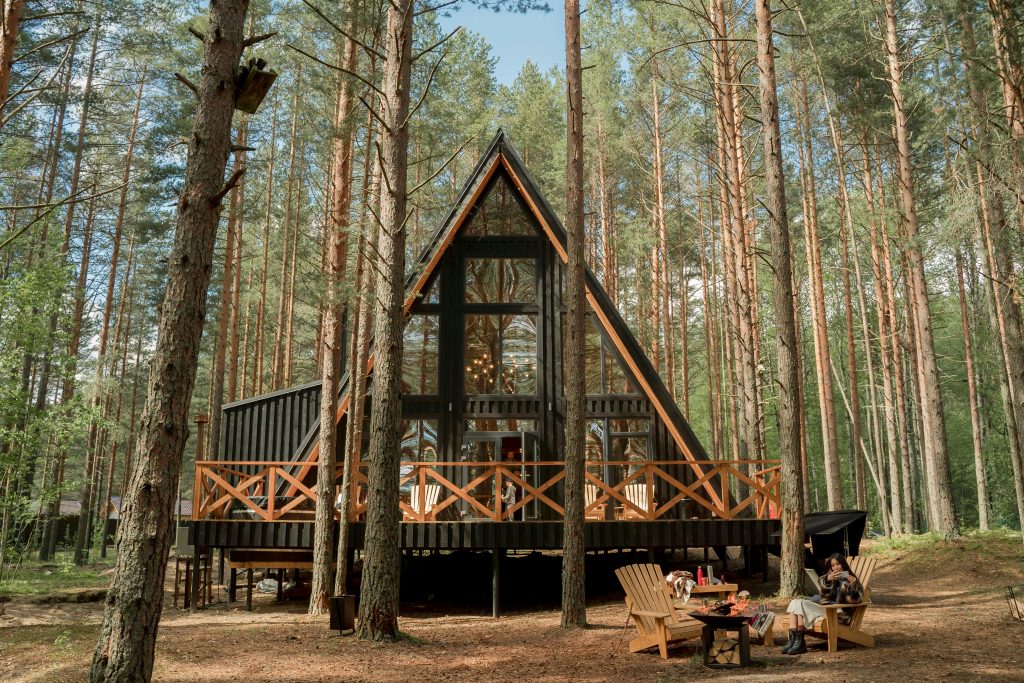


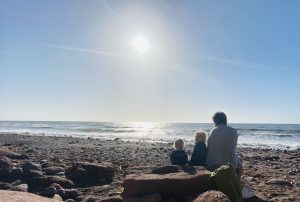
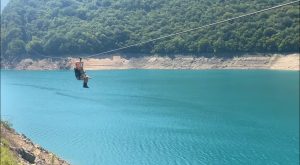
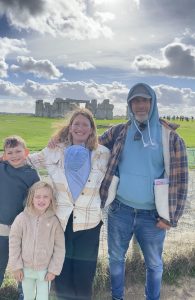
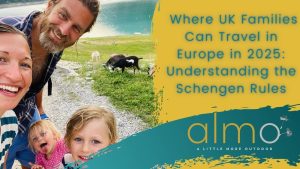
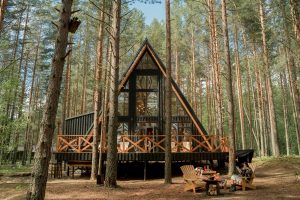
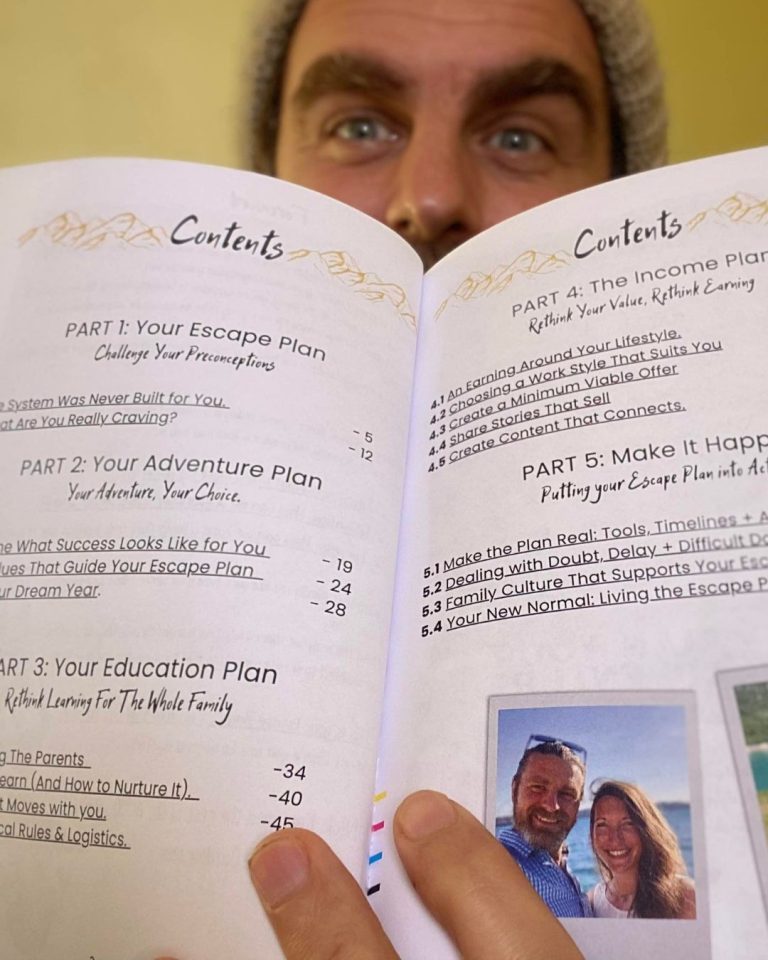
 Adventure – Your style. Your pace.
Adventure – Your style. Your pace. Income – Earn your way, from anywhere.
Income – Earn your way, from anywhere. Education – A learning path that fits your family.
Education – A learning path that fits your family. Action -Make it happen
Action -Make it happen